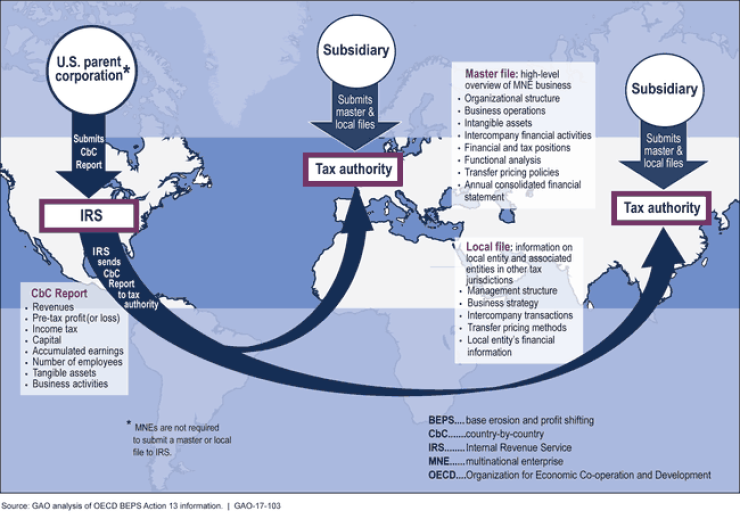The U.S. had participated in the development of the Organization for Economic Cooperation and Development’s Base Erosion and Profit Shifting agreement during the Obama administration, but as with the Paris climate accord, the U.S. did not sign the treaty under the Trump administration.
The Multilateral Convention to Implement Tax Treaty Related Measures to Prevent Base Erosion and Profit Shifting, or MLI, provides ways for governments to close the gaps in existing international tax rules by transposing results from the OECD/G20 BEPS Project into bilateral tax treaties worldwide. The multilateral convention modifies the application of thousands of bilateral tax treaties concluded to eliminate double taxation. It also implements a set of minimum standards to battle tax treaty abuse and to improve dispute resolution mechanisms while providing flexibility to accommodate specific tax treaty policies. The OECD noted that the agreement is still open for other signatures.

Several tax experts weighed in on the agreement. “The multilateral instrument (MLI) will make significant changes to the worldwide treaty network in a very short period of time,” said Manal Corwin, national leader of the International Tax practice of KPMG LLP and principal in charge of International Tax Policy in the firm’s Washington National Tax practice. “Multinational enterprises will need to pay close attention to each country’s choices of options and opt-outs under the MLI, as those choices may have significant tax consequences for their existing operations. While the United States did not sign the MLI, U.S.-based MNEs need to be sure that they understand the impact of the MLI on their operations outside the United States.”
Jesse Eggert, a principal in the international tax group of the Washington National Tax practice of KPMG and former senior advisor with the OECD, added: “It will take some time to fully understand the effect of the MLI on worldwide tax treaties. The interaction between the various optional provisions and reservations is complex, and the MLI permits countries to make changes to their choices during the ratification process.” While at the OECD, Eggert led the negotiations among some 100 jurisdictions to develop the multilateral instrument.
An Ernst & Young tax expert also commented on the treaty. “Although the U.S. participated as a member of the working group on the MLI, there is no indication that they will become a signatory, possibly because the US already has some variation of many of the provisions contained within the MLI in its double tax treaties,” said Arlene S. Fitzpatrick, a principal in EY’s National Tax - International Tax Services at Ernst & Young, in a statement. “Notwithstanding, U.S. multinational groups should continue to pay attention to tax treaties that are expected to be modified as a result of countries becoming signatories to the MLI because those modifications could impact existing tax treaty benefits within the MNE group.”
Some groups were disappointed the U.S. didn’t sign the agreement. “Today, the U.S. administration chose to double down on its abdication of American leadership,” said Clark Gascoigne, the deputy director of the Financial Accountability and Corporate Transparency (FACT) Coalition. “After withdrawing from the climate change accords last week, the administration backed away from another Paris-based international agreement today—one that combats tax avoidance by multinational corporations. Tax dodging by large multinationals is a global problem that costs American taxpayers in excess of $130 billion per year—more than any other country. Combating a global problem like this requires international cooperation, which is why roughly 70 countries met in Paris today to sign a convention that the U.S. was instrumental in negotiating. By retreating from the agreement at this point, the U.S. is forfeiting leadership in yet another forum."
Eric LeCompte, executive director of the religious development group Jubilee USA, noted, “The agreement is a critical step forward for transparency and tackling corporate tax avoidance. The tax pact acknowledges that we are dealing with a problem that transcends borders and we need solutions that can cross borders. Early on, the United States was a leader in moving forward this process to tackle tax avoidance. Unfortunately the U.S. didn't sign the agreement. We encourage the United States to rejoin this agreement and support other efforts that promote financial transparency."





